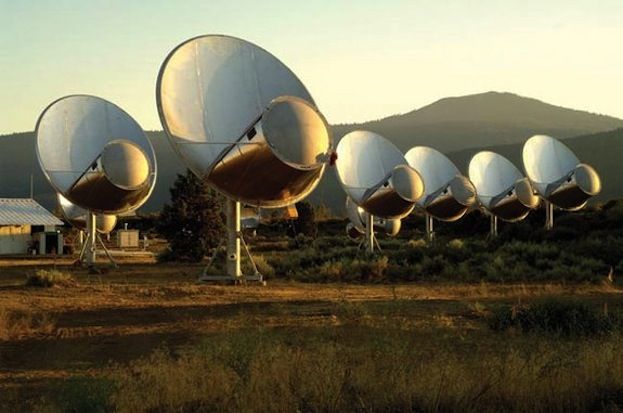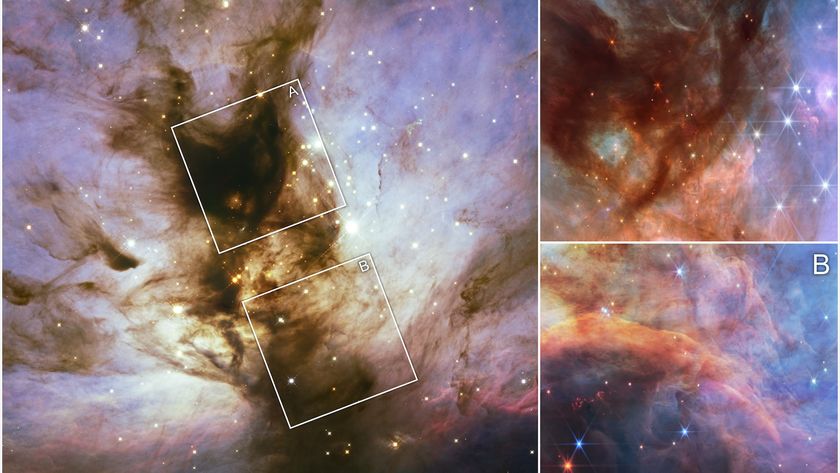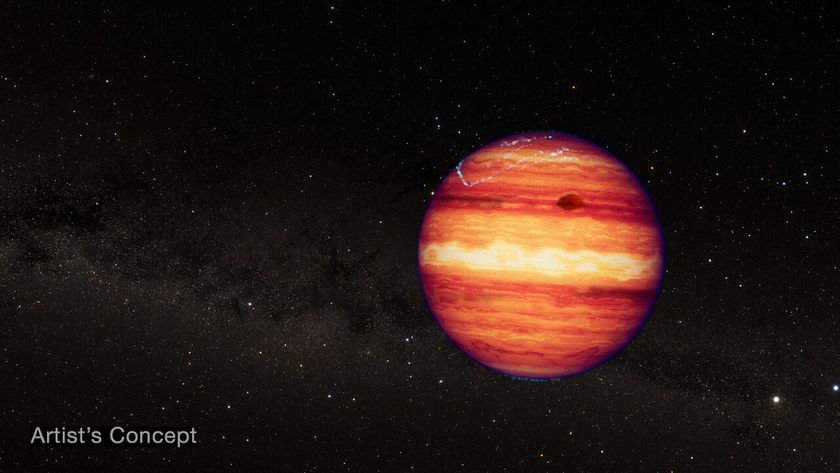Would Finding Alien Life Change Religious Philosophies?

The discovery of extraterrestrial beings — be they slimy microbes or little green men — would dramatically change the way we humans view our place in the universe. But would it shatter religion? Well, that depends on what you believe.
In his new book "Religions and Extraterrestrial Life" (Springer 2014), David Weintraub, an astronomer at Vanderbilt University, takes a close look at how different faiths would handle the revelation that we're not alone. Some of his findings might surprise you.
Public polls have shown that a large share of the population believes aliens are out there. In one survey released last year by the company Survata, 37 percent of the 5,886 Americans who were polled said they believed in the existence of extraterrestrial life, while 21 percent said they didn't believe and 42 percent were unsure. Responses varied by religion: 55 percent of atheists said they believed in extraterrestrials, as did 44 percent of Muslims, 37 percent of Jews, 36 percent of Hindus and 32 percent of Christians. [7 Huge Misconceptions about Aliens]
Weintraub found that some religions are more accommodating to the idea of E.T. than others. Those with an Earth-centric spiritual point of view are the most likely to be made uncomfortable by questions about the discovery of aliens. Certain evangelical and fundamentalist Christians, for example, are of the opinion that God's sole intent was to create people here on Earth. Some believe that if God created life anywhere else, it would say that in Genesis, Weintraub said.
But some Christians who interpret the Bible quite literally might actually have an easier time incorporating the existence of aliens into their spiritual cosmology. Many Seventh-day Adventists, for example, are creationists who believe the Earth was literally created by God in six days some 6,000 years ago and that humans descended — and inherited original sin — from Adam and Eve. In that line of thinking, life could exist on other planets, but beings that didn't descend from Adam and Eve on Earth wouldn't be inherently sinful, and effectively, they wouldn't need Christianity to be saved, Weintraub told Live Science.
Seventh-day Adventism's flexibility with regard to aliens might be a product of the time in which the religion was founded (the 19th century). During the 1700s and 1800s, there was a strong popular belief in extraterrestrial life, Weintraub said. The telescope (a relatively recent invention) finally allowed astronomers to peek at other planets and moons in our solar system, but scientists didn't yet fully understand that these celestial bodies were barren. And perhaps it's no coincidence that the religions that began at that time — Mormonism, Seventh-day Adventism, Jehovah's Witnesses, the Baha'i Faith — all have a strong belief in extraterrestrial life, Weintraub said.
In contrast, the notion of extraterrestrial life was for the most part irrelevant to religions that began thousands of years ago.
Sign up for the Live Science daily newsletter now
Get the world’s most fascinating discoveries delivered straight to your inbox.
"Ideas about extraterrestrial life — if they're part of the sacred writings — they're buried a little bit deeper," Weintraub told Live Science. "They're not obvious. They're layered below the top. In Jewish scripture, there's pretty much nothing there. You really have to over-interpret to find anything that you can marginally say might have anything to do with extraterrestrial life."
Of course, aliens have figured into the beliefs of small cults and fringe religious groups. In a famous example, 39 members of the so-called Heaven's Gate group committed suicide believing they would leave their earthly bodies and reach an alien spacecraft trailing the comet Hale-Bopp in 1997. Weintraub didn't look at these groups (nor did he analyze Scientology), but he said it's likely that future religions would spring up and seize on the discovery of extraterrestrial life.
"There are a lot of so-called UFO religions, and I'm sure that if we discovered that there really was life beyond Earth, there would be lots more of these kinds of things," Weintraub said. "There undoubtedly would be people who would find this as an opportunity or an excuse to call attention to themselves for whatever reason and there would be new religions." [UFO Quiz: What's Really Out There]
With advances in exoplanet research and astrobiology, scientists could realistically be on the cusp of finding evidence for life far away from Earth — perhaps not intelligent life, but life, nonetheless. That's why Weintraub thinks the rest of us should be prepared for the spiritual questions that will follow — and that astronomers should participate in that conversation, since the question "Is there life in the universe?" now belongs to the domain of science, not just philosophy.
"It almost doesn't matter what kind of life it is," Weintraub told Live Science "If there's any kind of life out there it simply means we're not alone. And knowing we're not alone, I think, has a lot of meaning."
It will likely be millions of years before humans discover and are able to communicate with intelligent alien beings — if they're out there, Weintraub said. But he thinks it's worth extending the thought experiment to consider how we would treat aliens of different faiths. Would we repeat the mistakes of European missionaries who converted the "heathens" of the New World to Christianity? Or would we adopt a policy that looks more like the no-interference "prime directive" of the "Star Trek" universe? Would sentient aliens have their own religions? Would they try to preach to us?
"Once you think about this enough, it's worth recognizing that if it's OK for somebody in a different part of the universe to have a different religion, maybe it's OK for somebody else in a different part of the Earth to have a different religion," Weintrub said. "Maybe we could figure something out down here that could make us get along a little better."
Follow Megan Gannon on Twitter and Google+. Follow us @livescience, Facebook & Google+. Original article on Live Science.










